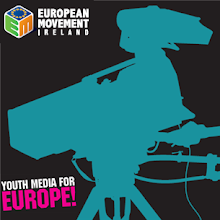 By Kate Manning
By Kate ManningNewton famously proved that “for every action there is an equal and opposite reaction”. Well for every political organisation, party and belief there is an opposing side. Nowhere is this more evident than in the European Parliament.
Libertas, which derived from a think-tank set up by Declan Ganley, became a vocal critic of the Lisbon Treaty. Having mounting a successful no campaign,, Libertas have since set their sights on winning seats in the European Parliament. While some perceive Libertas as being anti-EU, they disagree. The problem for them is that “the once honest and inclusive governance of the Union has become unaccountable, murky, anti-democratic.”
Then there is the Independence/Democracy Group. Some of their members are from the UK Independence Party who advocate the “complete withdrawal of their country from the EU”. The leaders of the ID Group are Nigel Farage (UKIP) and Irelands Kathy Sinnott (Ind).
After the results of the Lisbon referendum in Ireland were revealed in June 2008, members of the ID Group filed into the European Parliament wearing green jerseys saying “Respect the Irish No Vote”. Avril Doyle MEP controversially responded by saying “Respect the Irish NO Vote". How things could have been different if only our British colleagues had come to this conclusion a century ago!” Miaow!
The Czech President Vaclav Klaus is another strong critic of the European Parliament. Having sided with the Libertascamp over Lisbon, Klaus visited Ireland in November of last year. According to EU blogger Stanley Krossick he “described Mr Ganley as a 'dissident' in the mould of former Soviet-era dissidents in his own country”. Interesting, as his state currently holds the EU Presidency.
MEPS from the UK Conservative Party have always been members of the largest grouping in the European Parliament; the EPP. After the European elections this week, they will form their own centre-right grouping with some Czech and Polish MEPs. The Tories are eager to create a stronger Eurosceptic voice in Parliament. The Financial Times reports that this could cause “serious divisions and will not be easily laid to rest” in Britain. Not to mention what it will do to their influence in Brussels.
Some would argue that opinions and groupings such as those mentioned above are detrimental to democracy. However, not allowing them to voice their concerns regarding such a huge institution would undermine everything that democracy entails. Critics are needed in the European Parliamentas they encourage public debate. However, there has got to be a line which should not be crossed and behaviour like that of the ID Group at the time of the Lisbon Referendum only serves to make a mockery of the EU. For all their condemnation of the Parliament, the UKIP and BNP MEPs still make a living out of the Parliament and Libertas struggle to have the same policies in all the European Member States, which was seen in the debate on immigration and free borders. Constructive debates are essential, bold children at the back of the classroom are not.










No comments:
Post a Comment